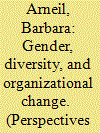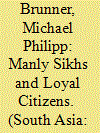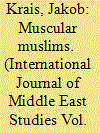| Srl | Item |
| 1 |
ID:
096278


|
|
|
|
|
| Publication |
2010.
|
| Summary/Abstract |
After growing for decades, the Boy Scouts and Girl Scouts both experienced a dramatic drop in membership during the 1970s. Since then their membership patterns have diverged as the Boy Scouts of America (BSA) continues to decline and the Girl Scouts of the USA (GSUSA) has reached near record numbers. These patterns raise two questions: Why the decline? And why the divergence? On the cause of decline, I argue that a younger civil rights generation, informed by a new set of post-materialist values, did not join traditional organizations like the BSA and GSUSA because their values were deemed to be outdated. The challenge for traditional organizations therefore was how to respond. Using path dependency theory, I argue that BSA and GSUSA-shaped by their own unique origins and identities-responded very differently to the critical juncture of the civil rights generation, which in turn explains the subsequent divergence in membership patterns from the 1980s onward. While the BSA rejects such changes in order to defend traditional values, the GSUSA, which established a commitment to challenging gender norms from its birth, embraces the new values and adapts virtually every aspect of its organizational identity to this new generation. As young people see themselves reflected back in the values endorsed by the GSUSA, its membership resurges, while the BSA continues to decline. I conclude by drawing out larger theoretical lessons on the meaning of change in American civil society in light of an increasingly diverse population.
|
|
|
|
|
|
|
|
|
|
|
|
|
|
|
|
| 2 |
ID:
157869


|
|
|
|
|
| Summary/Abstract |
This article looks at Khalsa College, the first college specifically aimed at the Sikh community in late colonial India, and its schemes for and ideals of physical culture. Despite Sikh communal and Indian national aspirations, as well as a robust transnational discourse on ‘scientific’ physical culture that was being increasingly articulated in the inter-war period, Khalsa College remained remarkably devoted to ‘modernised’ physical exercise schemes focusing on British ‘manly games’ such as football, hockey and cricket. The essay locates the reasons behind the college management's staunch loyalty to Britain and opposition to newer, radical Sikh politics; its use of images of Sikh military traditions and ‘martial manliness’, often used to demarcate Sikhism from an ‘effeminate’ Hinduism; and its specific interest—shared by the colonial authorities—in keeping the students fit for military service.
|
|
|
|
|
|
|
|
|
|
|
|
|
|
|
|
| 3 |
ID:
170054


|
|
|
|
|
| Summary/Abstract |
The Islamic reformist movement in Algeria is often seen as a precursor to the independence movement, in which religion was supposedly integrated into nationalist identity politics. Focusing on the Muslim scout movements between the 1930s and 1950s, this article challenges this view by arguing that Islam continued to play a role beyond that of an identitarian marker. Influenced by Christian youth movements, the Muslim scouts developed ideas of a “muscular Islam” that remained central even after the movement split in two—one association close to the major nationalist party and another linked to the reformists.
|
|
|
|
|
|
|
|
|
|
|
|
|
|
|
|